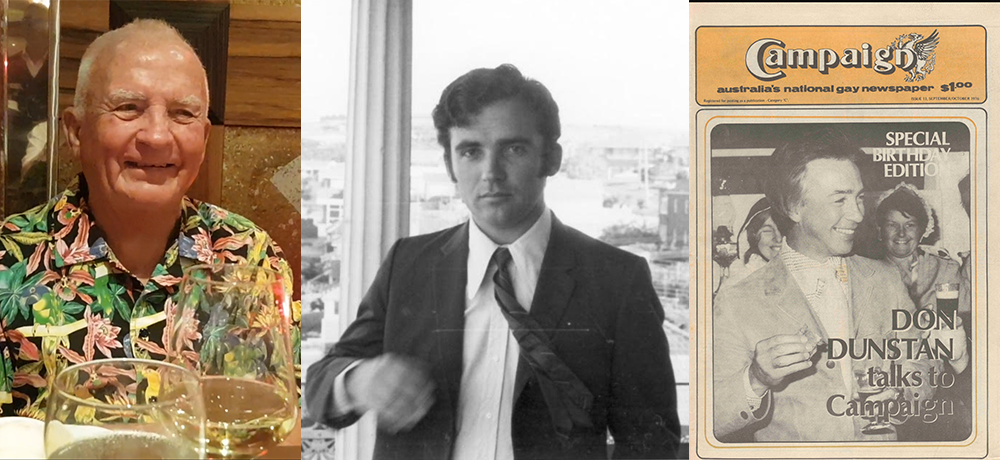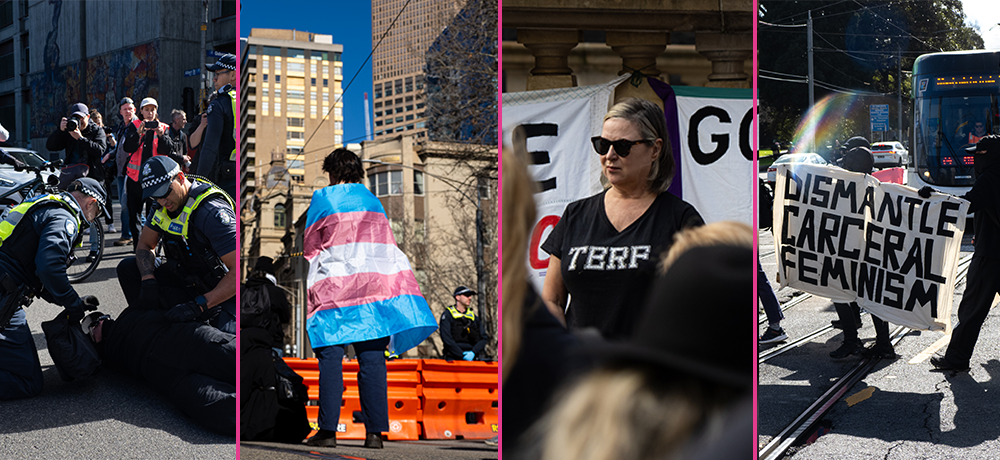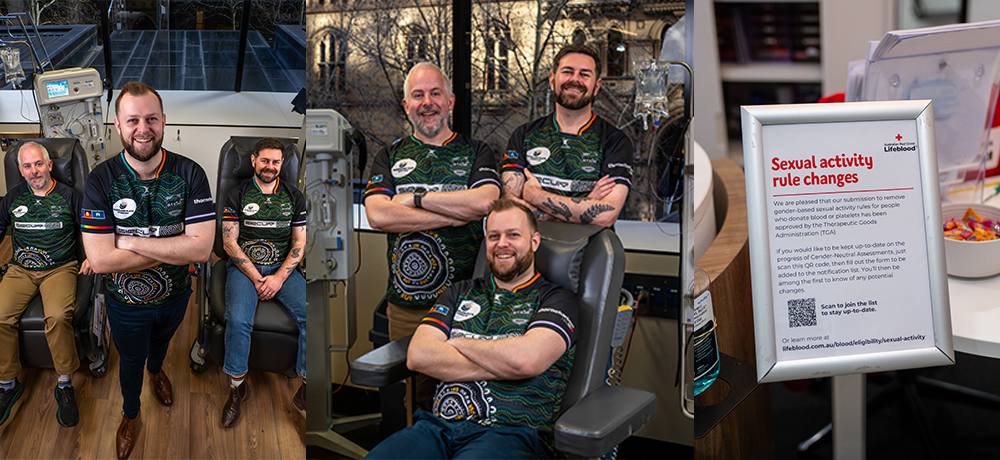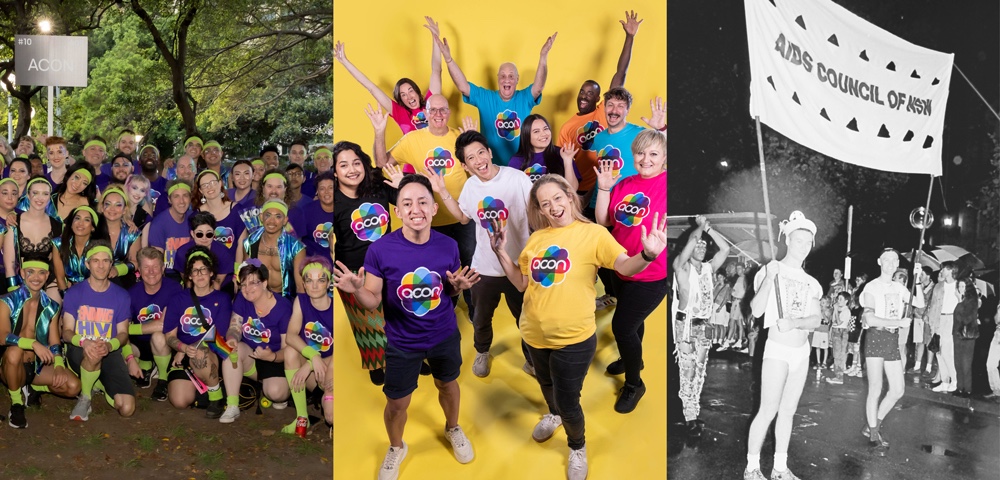
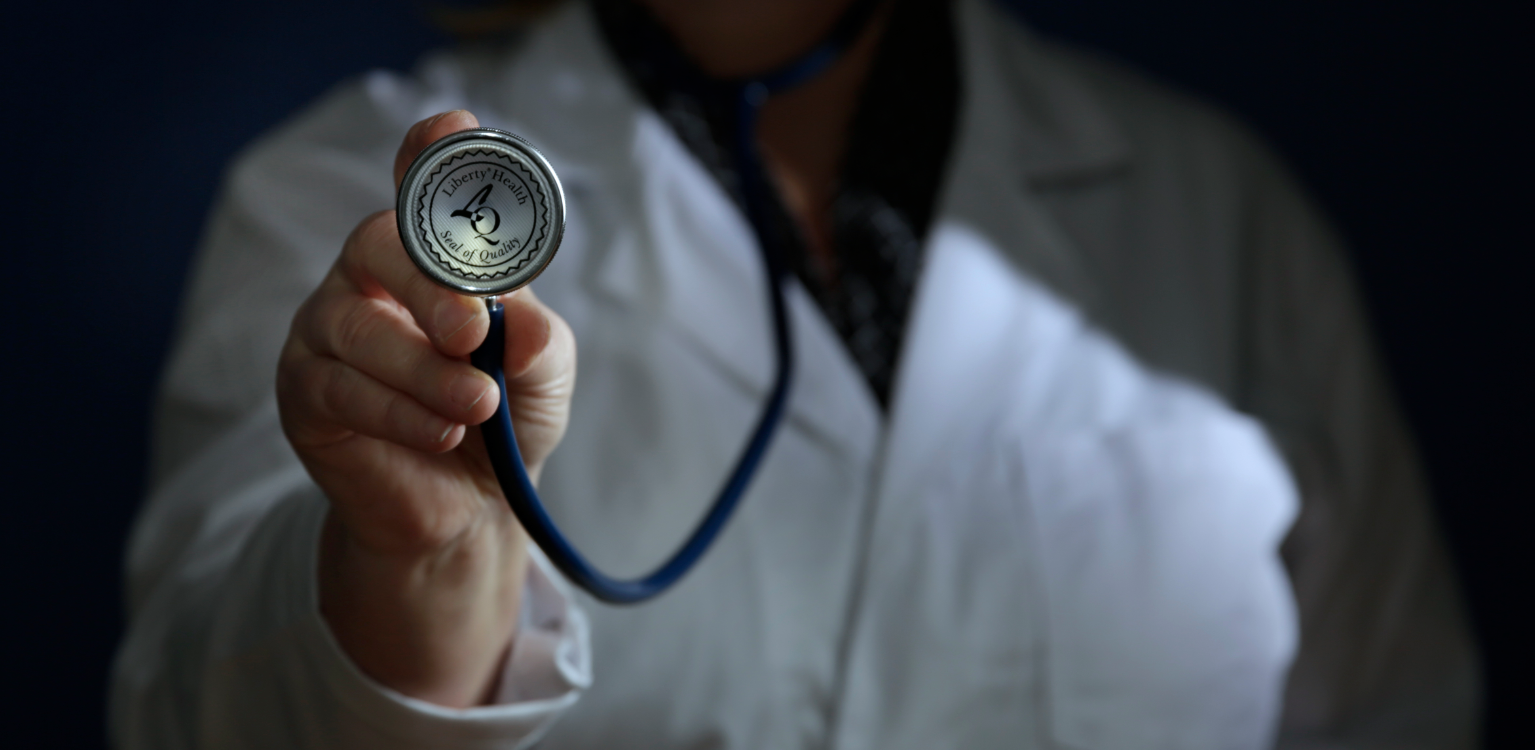
WHEN Sarah was first diagnosed with HIV in London five years ago, she was advised by her doctor that she didn’t have to go on treatment if she didn’t want to.
At the time, her CD4 cell count – the cells that protect the body from other infections – was safely sitting above 600, and five years ago this meant treatment wasn’t believed to be as critical.
Her risk of transmission was also significantly lower as a woman, and her viral load – the amount of HIV in a sample of blood – was under 1000.
As a newly diagnosed HIV-positive person, Sarah said she didn’t know anything about the virus or antiretroviral therapy and just went with what the doctor had told her.
It wasn’t until she moved to Australia that she began to recognise the pressure and stigma faced by HIV-positive people who choose not to go on treatment.
“I was at a barbeque and the people there didn’t know I wasn’t on treatment,” she told the Star Observer.
“It was shocking to them that I would make a ‘negative’ choice – I do feel pressure to go on treatment and while no-one’s outright told me to go on it, it does feel abnormal now.
“It makes you feel like you may actually be doing something wrong.”
HIV-positive people are already widely stigmatised, but when they aren’t on treatment a new stigma is introduced – one that can affect the person’s willingness to be open about their status.
As a member of an already marginalised community wherein disclosing one’s HIV status is often marked as taboo, Sarah believes the pressure put on those who aren’t on treatment can have a damaging impact.
“We all experience the same types of emotional issues and mental health issues through disclosure,” she said.
“But if you’re marginalised within a community that’s already marginalised, it could push you underground and make you scared to disclose.”
One of the frequently raised benefits of going on treatment is its use as a method of HIV prevention, or treatment as prevention (TasP).
By going on treatment a HIV-positive person can reduce their viral load and by extension their risk of transmitting the virus.
But the pressure stemming from this line of messaging can come with a troubling sense of social obligation for those not on treatment.
Christy Newman from UNSW’s Centre for Social Research in Health recently worked with a team to conduct social research on people living with HIV who weren’t on treatment.
They conducted phone interviews with 27 HIV-positive people who were living in different parts of Australia, and while only a few participants were determined to never use treatment, many others had a diverse range of reasons for delaying.
“Many participants, even those who were open to starting treatment, described feeling pressure to use treatment and to justify their reasons for non-use,” Newman said.
“Some of their concerns were focused on treatment as prevention, which they felt displaced their own agency in making the very personal decision to commit to a daily and lifelong treatment regimen.
“Others feared or had experienced negative reactions if they revealed to friends and family that they were not using treatment.”
The study found that the pressure or ‘social obligation’ to go on treatment as a form of prevention posed many risks to the participants.
“The risk of treatment decisions becoming entangled with social obligations is that people who hold fears and concerns about those medications may feel wary of being honest, for fear they’ll be misunderstood or stigmatised for feeling that way,” she said.
“Or they may feel pushed into increasingly hard-line positions of refusal, simply because they don’t feel there are any spaces to work through those fears in a safe, respectful manner.”
Sarah believes it’s important to recognise how a person is feeling, and where they’re at mentally, before encouraging them to go on treatment as a form of prevention.
“My ex hasn’t gotten his head wrapped around it and has in the past had unprotected sex so it’s about where you are mentally,” she said.
Since undertaking the social research, Newman said a major challenge for those working in the HIV response today is to protect the rights of people with HIV to hold doubts about medicines and treatments.
“Our hope is that community and clinical services can find ways to encourage open and honest dialogue about treatments with HIV-positive people, including those who aren’t using treatments,” she said.
“They need to respect that the way people feel about medicines is diverse, and framing doubts about medications as irrational, misinformed, or dangerous will only risk further marginalisation and misunderstanding.”
More recently, along with using HIV treatment as a form of prevention, the individual health benefits of going on treatment have increasingly come to light.
The Strategic Timing of Antiretroviral Treatment (START) study found that the immediate treatment of HIV was clinically superior than deferred treatment or the decision not to go on treatment.
The findings revealed that treatment reduced the risk of liver disease and cancer by more than 50 per cent, and reduced other serious disease complications in people with HIV infection.
In light of the study the Victorian AIDS Council (VAC) and Living Positive Victoria launched a new Treat HIV Early campaign aimed at encouraging early treatment for people diagnosed with HIV.
With both treatment as prevention and the individual health benefits of antiretroviral therapy now being championed, those who decide not to go on treatment are being exposed to more pro- treatment messages than ever before.
Director of Health Promotion, Policy, and Communications at VAC, Colin Batrouney, said the campaign isn’t designed to pressure anyone.
“We have never and are not now pressuring HIV-positive people to go on treatments,” he said.
“Personal readiness to commit to treatment is the most critical factor in any decision to commence therapy.
“Individuals need to weigh up the benefits to themselves with regard to health and well- being, in addition to the need to be adherent to medication.”
When Sarah first weighed up going on treatment, she asked herself many questions.
“I thought do I need to start treatment, and am I committed to a 50-year regime,” she said. “Now it’s widely accepted that you go on treatment because of the health benefits, so I wondered if it was for me.
“But I knew I would just get the medications, put them on my bedside table, and never take them.”
Co-founder of The Institute of Many (TIM), Nic Holas, said there have been major shifts over
time in regards to how treatment has been seen by the community.

“There’s definitely been a big shift in how treatment options are perceived by the poz community and the organisations that represent us,” he said.
“It’s almost like a generational shift in attitude – for those of us too young to remember all the side effects and pill burdens of earlier treatments, there is less of a mental barrier.
“These days, it’s the exception not the norm to find a queer guy who is HIV-positive and not on meds, which can create a sense of ‘othering’ amidst an already ‘othered’ community of people living with HIV.”
Holas believes that granted HIV-positive people who aren’t on treatment have made an informed decision, this should be respected.
“If I stopped taking my meds, I would develop AIDS-defining illnesses in the next five to ten
years and probably die,” he said.
“As long as someone is making informed choices then the decision to start treatment is usually
respected and the person isn’t stigmatised.
“If their decision not to treat is based on ignorance, fear, or misinformation then I think we
have a responsibility as a community to talk them through it.”
As medications continue to develop, with an injectable HIV treatment currently undergoing clinical trials, Sarah said all newly diagnosed HIV-positive people really need to commit to treatment being right for them.
“Last week my doctor told me there’s a new, new one that provokes even less kidney problems then Truvada,” she said.
“I get my cells checked regularly and if my CD4 count dropped too low I would go on it.
“People who are newly diagnosed will listen to what the doctor tells them and now every doctor will tell you to go on treatment… with less and less people not being on treatment, we’re going to continue to be a minority within a minority, and the pressure and stigma may get worse.”





